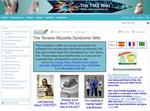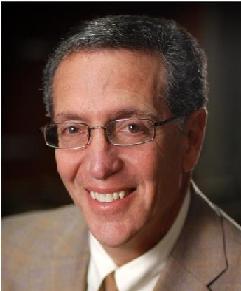 |
Dear Friends and Colleagues,
I hope this finds you all well. It is hard to believe that the leaves are changing and Fall is here. Over the past month there have been several exciting developments with the PPD/TMS Peer Network and the entire PPD community that I am eager to share with you. that I am eager to share with you.
Sincerely,
Forest
In this Edition:
-
Q&A with an Expert Responses
-
Peer Supervision Teleconference with Howard Schubiner
-
2012 PPD Conference
-
PPD Peer Drop-in Chat
|
 |
Q & A with an Expert
Over the past several weeks the PTPN has received three new submissions for the
Q & A with an Expert Program. Frances Anderson, PhD, Howard Schubiner, MD and Dave Clarke, MD have all answered questions regarding PPD theory and how to recover from chronic illness. If you are interested in submitting a response to these questions please send us a message through our forum. All responses will be reviewed and possibly added to the corresponding wiki ppd. The full questions can be found by following the links to the corresopnding wiki ppd. The three new additions are below.
 Response by Frances Anderson, PhD. Response by Frances Anderson, PhD.
How do I overcome initial unconscious resistance to "the work?"
I haven't read your full story but have a few comments that I hope will be useful in what can be a challenging "journey with this beast."
1. The discoveries you've made through therapeutic journaling will most likely be invaluable in working with the unconscious resistance you mention. In my view, resistance is part of being human and a way of protecting us from whatever feelings are intolerable. Even physical pain can be "unconsciously preferable" to emotions that the child within you may have had to repress in order to survive. I encourage you to respect the resistance when you notice it. Sometimes I recommend that people say something like, "Thank you, resistance/pain for alerting me that I need to tune in to what's upsetting me now!"
2. If you have not been given a diagnosis by a TMS-qualified physician, I encourage you to seek a consultation. Sometimes people discover that there are subtle questions about the diagnosis lurking, even if the person thinks that they believe that the TMS diagnosis is accurate.
3. While you want to experience freedom from pain, I encourage you to notice if you're putting pressure on yourself to be pain free as soon as possible. Of course you want to be free of pain but sometimes people can actually be creating pressure on themselves to be pain free as soon as possible or within a certain time frame. They can actually feel like a failure because they're not making progress as quickly as possible.
4. Keep trying to connect with that child within, noticing all of your adult reactions to the child. Sometimes people find it difficult to be patient and compassionate with that child because they didn't experience that from important authority figures when they were a child.
Response by Howard Schubiner, MD
 Can PPD cause swelling?
You’re asking an important question that often arises. At its core, the question probes the relationship between PPD/TMS and structural changes in the body. In general, PPD/TMS does not cause structural changes in the body. It produces symptoms, such as pain, fatigue, diarrhea by activating nerve pathways that act on the body. These nerve pathways are real and produce real symptoms, but typically they do not cause structural changes which I am defining as some kind of tissue damage, as seen by swelling or inflammation. However, it is well known that at times, the mind (PPD/TMS) can cause tissue damage. There is a rare condition known as “broken heart syndrome” in which an emotional event or shock leads to tissue damage in the heart sending the unfortunate person into a cardiac care unit, often with low blood pressure and inability of the heart to pump as powerfully as it usually does (fortunately, this is almost always reversible). Another condition that crosses the line between “pure” PPD/TMS without any structural changes and PPD/TMS with structural changes in called Chronic Regional Pain Syndrome (CRPS, formerly known as RSD or reflex sympathetic dystrophy). Here the affected body part gets swollen, red or purplish in color, and very painful. I think that CRPS is another form of PPD/TMS, but apparently one that includes some tissue damage. Can PPD cause swelling?
You’re asking an important question that often arises. At its core, the question probes the relationship between PPD/TMS and structural changes in the body. In general, PPD/TMS does not cause structural changes in the body. It produces symptoms, such as pain, fatigue, diarrhea by activating nerve pathways that act on the body. These nerve pathways are real and produce real symptoms, but typically they do not cause structural changes which I am defining as some kind of tissue damage, as seen by swelling or inflammation. However, it is well known that at times, the mind (PPD/TMS) can cause tissue damage. There is a rare condition known as “broken heart syndrome” in which an emotional event or shock leads to tissue damage in the heart sending the unfortunate person into a cardiac care unit, often with low blood pressure and inability of the heart to pump as powerfully as it usually does (fortunately, this is almost always reversible). Another condition that crosses the line between “pure” PPD/TMS without any structural changes and PPD/TMS with structural changes in called Chronic Regional Pain Syndrome (CRPS, formerly known as RSD or reflex sympathetic dystrophy). Here the affected body part gets swollen, red or purplish in color, and very painful. I think that CRPS is another form of PPD/TMS, but apparently one that includes some tissue damage.
With regard to back pain, PPD/TMS does not cause inflammation in the back so that swelling would not result from that process. We know that PPD/TMS can cause muscle tightness, contractions and spasms in the back. The back muscles have been shown to do this in response to emotions, such as anger. See research by John Burns (Burns JW. Arousal of negative emotions and symptom-specific reactivity in chronic low back pain patients. Emotion. 2006, 6: 309-19.) for details. The swelling that is sometimes noticed in the back is probably due to muscles of the back tightening, shortening and “balling up” so to speak, which is interpreted as swelling. So-called “degenerative disc disease” cannot cause swelling seen on the surface as those structures are much deeper inside the body. When one approaches a patient with back pain, it is obviously crucial to rule out a structural cause for the pain such as a fracture, tumor, or inflammatory disease. However, when those are not identified, back pain usually fits into the pure PPD/TMS category of illnesses, i.e. there are no structural changes in the body and the pain is caused by activation of nerve pathways triggered by stress and emotions.
Responses by Dave Clarke, MD

What is the relationship between food intolerance and PPD?
One study showed that only 4% of people who thought they had a food allergy or intolerance actually had one. Most of the rest likely had PPD, particularly when gastrointestinal symptoms rise and fall with the stress level. (That being said, the condition called Celiac disease, which is not caused by stress, can present itself in a number of subtle guises and can be checked for with high reliability by a blood test.) Stress-related gastrointestinal symptoms are quite common and can be severe enough to lead to hospitalization. When people get these symptoms they usually then recall recently consumed foods and mistakenly blame them for the problem. Foods you can eat some of the time without problems are usually not the source of the symptoms.
Can Simply having ongoing stress in my life be the main factor in PPD?
Ongoing stress in one's life is entirely capable of causing PPD symptoms even with no childhood issues. However, the personality characteristics described by the questioner usually arise because of family dysfunction when the person was a child. It is common for these early issues not to be recognized as damaging (or even recognized as problems) when the adult remembers their early years. Quite subtle problems in the family are easily capable of causing "perfectionism, control issues, people-pleasing and being self-critical" that the questioner describes. Chapter 3 of my book is devoted to helping people recognize how this happens.
|
|
Peer Supervision Teleconference
The next Peer Supervision Teleconference will be held on Saturday, November 5th, from 1:00 to 2:30 PM EST. The guest speaker will be PPD physician Howard Schubiner. Continuing education credits are available for anyone who will be attending this session or who has attend previous meetings. For more information contact either myself or Jonna Barta.
Dr. Schubiner is the founder and director of the Mind Body Medicine Program at Providence Hospital. He is board-certified in pediatrics, adolescent medicine, and internal medicine. He was a full Professor at Wayne State University for 18 years and now works at Providence Hospital in Southfield, MI. In 2010, he published Unlearn Your Pain which offers a comprehensive 28-day program for PPD recovery. In addition he also published the first Randomized Control Trial in the Journal of General Internal Medicine showing the effectiveness of the PPD approach in reducing Fibromyalgia symptoms.
Earlier this year the TMS Wiki interviewed Dr. Schubiner where he discussed his PPD treatment and his research.
|
PPD Peer Support Chat Room
On Saturday October 15th, from 1:00 to 2:00 EST, the PTPN will be having an online chat room for people with PPD. This is an opportunity for anyone with PPD to briefly chat with someone else who has experience in recovering from PPD. The PTPN chat room will be open for one hour every Saturday. For more information please visit http://www.tmswiki.org/chat
|
|
TMS Wiki
For PPD Practitioners
PPD Discussion Forum
|
|